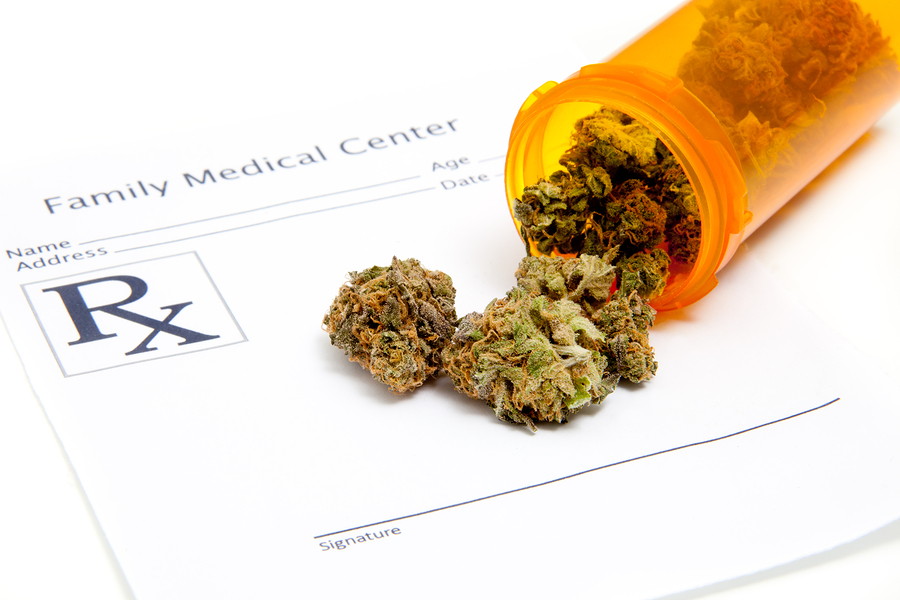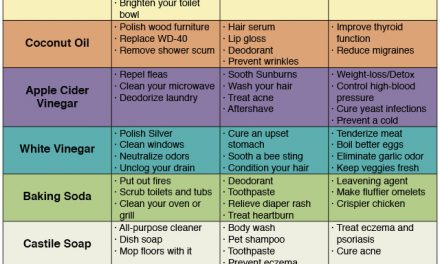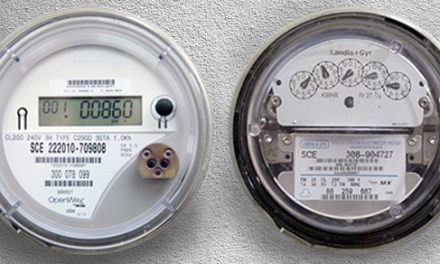Here’s how many people died of cannabis overdoses last year
By Joe Martino of CollectiveEvolution
Marijuana legalization has been the talk of North America for years now. It’s arguable that one of the biggest campaign promises made by Canada’s new Prime Minister, Justin Trudeau, was his goal to legalize cannabis countrywide. In the US, cannabis is legal in some form in 23 states, and with that we see a staggering number we should all consider. The number of Americans who fatally overdosed on cannabis in 2015 was: 0.
No one. Not a single person.
This of course is a huge increase from the year before which was also, zero. So it begs the questions: why is marijuana illegal? And why are other substances like alcohol and pharmaceuticals legal, yet they actively contribute to killing people in large numbers?
Hemp and cannabis became illegal back in 1937 for an all too common reason, it threatened the businesses of powerful people. You can grab the full ridiculously political story on that in an article I wrote about hemp and how they used cannabis to outlaw it back in 1937.
Legal Dangerous Substances
I’m not going to be one to say that it’s the substance’s fault all the time, because it’s not. I’m also not going to say whether things need to be legal or illegal right now. Instead I’m going to focus on the reality of what is happening.
Alcohol is legal, and very accessible in our society. It’s seen as a good time and something we can drink daily to relax after work. This year, the substance has aided in killing Americans at a rate that hasn’t been seen in roughly 35 years according to the Washington Post.[1] Reports state that more than 30,700 Americans died from alcohol-induced causes in 2015. This number does not include those who died as a result of alcohol related deaths like drunk driving or other accidents. If it did, the number would be close to 100,000.
According to a 2006 report in American Scientist, “alcohol is more lethal than many other commonly abused substances.” The report goes on to also mention:
Drinking a mere 10 times the normal amount of alcohol within 5 or 10 minutes can prove fatal, whereas smoking or eating marijuana might require something like 1,000 times the usual dose to cause death.
But it may not be fair to say that marijuana doesn’t have downsides because clearly it does. It’s speculated that it can cause brain developmental challenges in people under the age of 25 who smoke regularly, as it affects grey matter and it can of course also lead to drugged driving which can also be dangerous.[3] But are the dangers as bad as alcohol? And can we truly compare therapeutic values? What about when we look at pharmaceuticals?
Here are 2 graphs from the National Institute on Drug Abuse:
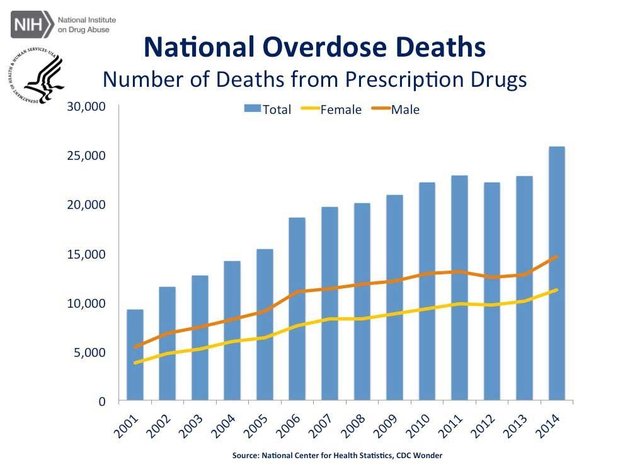
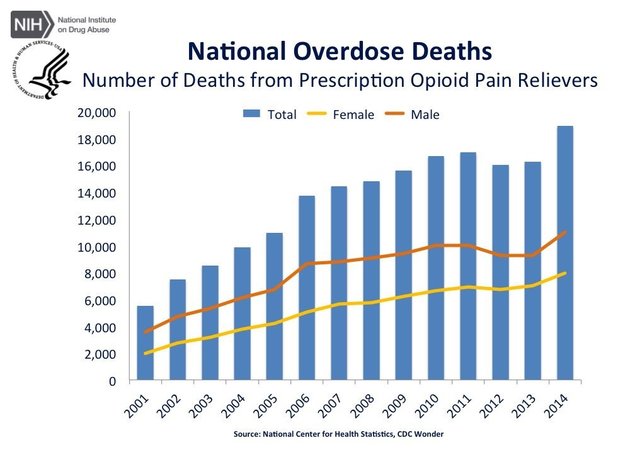 Looking at reported cases in the US, we see that prescription drugs prescribed by a doctor, as well as pain reliever addictions, have led to a combined 42,000 or so deaths in 2014. This is even more than alcohol! Strictly from a statistics point of view, prescription drugs, while having value in other areas, come with a great number of downsides and also happen to be the biggest business. Is there a conflict of interest in handing out these drugs when the ability to make money is attached? Do more drugs than are needed enter our society? The obvious answer is yes, when you look at how often drugs are not only wrongly prescribed, but are also the first option to fix something fickle before we even look at the potential behind lifestyle changes.
Looking at reported cases in the US, we see that prescription drugs prescribed by a doctor, as well as pain reliever addictions, have led to a combined 42,000 or so deaths in 2014. This is even more than alcohol! Strictly from a statistics point of view, prescription drugs, while having value in other areas, come with a great number of downsides and also happen to be the biggest business. Is there a conflict of interest in handing out these drugs when the ability to make money is attached? Do more drugs than are needed enter our society? The obvious answer is yes, when you look at how often drugs are not only wrongly prescribed, but are also the first option to fix something fickle before we even look at the potential behind lifestyle changes.
Public Demand
Although the public in North America in general seems to be pushing for the legalization of marijuana, it is still opposed heavily. Some groups include the pharmaceutical lobby, who would lose big in profits, as well as police unions who would lose federal budget for the war on drugs. You can begin to see our society runs less on common sense and more on political and monetary rigidity with groups all working against each other in their own interest.
But to be honest, legalization is a whole other topic, because I believe it is not quite as good as people hype it up to be. Some challenges that would come in include who controls marijuana growth, the quality of what is made available, and the manipulation of that product.
Interestingly enough, among all 2016 presidential contenders, Democratic hopeful Sen. Bernie Sanders (I-Vt.) is the only one who outright supports the legalization of marijuana. As of now the substance is classified as a Schedule 1 drug, up there with heroin and LSD. (which is a whole other topic of discussion)
Final Note
Entirely blaming a substance for the cause of people’s deaths and addictions is not an effective way of looking at the problem, nor is regulation of those substances going to be the answer in helping people. We have a large disconnect in our society in helping people with mental, emotional, and physical challenges and we are obsessed with isolating issues into black and white when most of the time they are not. I believe many of these deaths are a sign of other challenges in our society that we are opposed to looking at such as a lack of enjoyment and fulfilment in our jobs, not doing what we love, not processing our emotions, treating illness as purely physical and so forth. Until we can address many of these factors and implement solutions, we will always be creating addicts who find substances to get addicted to in order to compensate for other areas of their lives. This isn’t to say things like alcohol and prescriptions drugs are good and therefore should be so easily available to people, but more so to suggest that we all look at the full picture.
Sources:
2. https://www.americanscientist.org/libraries/documents/200645104835_307.pdf
3. http://www.thecannabist.co/2014/11/17/marijuana-young-brain-study/23251/
H/T: http://www.huffingtonpost.com/entry/marijuana-deaths-2014_56816417e4b06fa68880a217
About the Author: Joe Martino is the Founder of CollectiveEvolution.com – one of the largest free thinking sites on the net..



